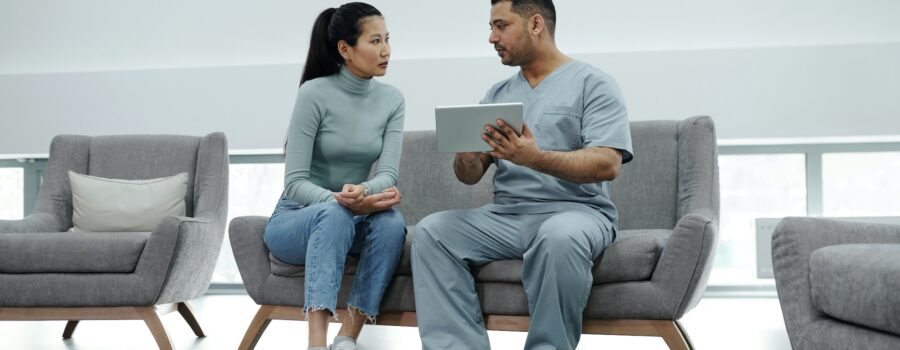You probably know you’re supposed to do some preventive work for your health every now and again. You might see a doctor to get your eyes checked and schedule annual physicals with your primary care physician. Maybe you get lab work to check your cholesterol or visit a pharmacy to evaluate your blood pressure. All of these things go a long way toward helping you catch issues early before they can get debilitating.
And it’s not just your physical health that needs this kind of attention. Your mental health does, too. In fact, the U.S. Preventive Services Task Force recently instituted a recommendation that all American adults under the age of 65 get screened for anxiety disorders.
The new recommendation — and what it means
This recommendation wasn’t just made because mental health topics have been trending lately. Instead, it was created after the task force completed a systematic evidence review. Collectively, the various studies the task force evaluated presented evidence from 13 million people.
The task force found that evidence demonstrates that early detection and treatment go a long way — and is often a missed opportunity.
In arguing for the importance of anxiety screenings, the task force says, “Anxiety disorders are often unrecognized in primary care settings and years-long delays in treatment initiation occur.” That’s not great news, but the task force does offer some hope. With treatment and time, it says, “Full recovery may occur.”
Why is this important?
Good question! Being able to accurately diagnose anxiety disorders through these screening protocols helps you to get the treatment you need to experience the benefits of reducing or ultimately ridding yourself of these symptoms that cause major life impairments. Beyond that, anxiety disorders that go untreated are associated with other physical health issues and risks. Those include heart disease, thyroid complications, and respiratory disorders.
Getting your anxiety screening
If you’ve never been screened for anxiety before, let this U.S. Preventive Services Task Force recommendation be a little nudge.
You have a few options here. First, you can talk to your doctor. Many primary care physicians can offer anxiety screenings in their offices. This is usually as simple as filling out a form telling them a little bit about how you’ve been feeling lately. Want to get an idea of how this might work? You can look at the generalized anxiety disorder (GAD) screener the Anxiety and Depression Association of America has online.
You can also self-screen using an online tool. Mental Health America has a questionnaire you can take to get an idea of whether or not anxiety treatment is something you should pursue.
And, of course, we’re here. If you want to talk with our intake coordinator or meet with a therapist to see if anxiety might be affecting you, get in touch with us at Ventura Counseling & Wellness Center in Ventura or the West Valley Counseling Center in Tarzana.





